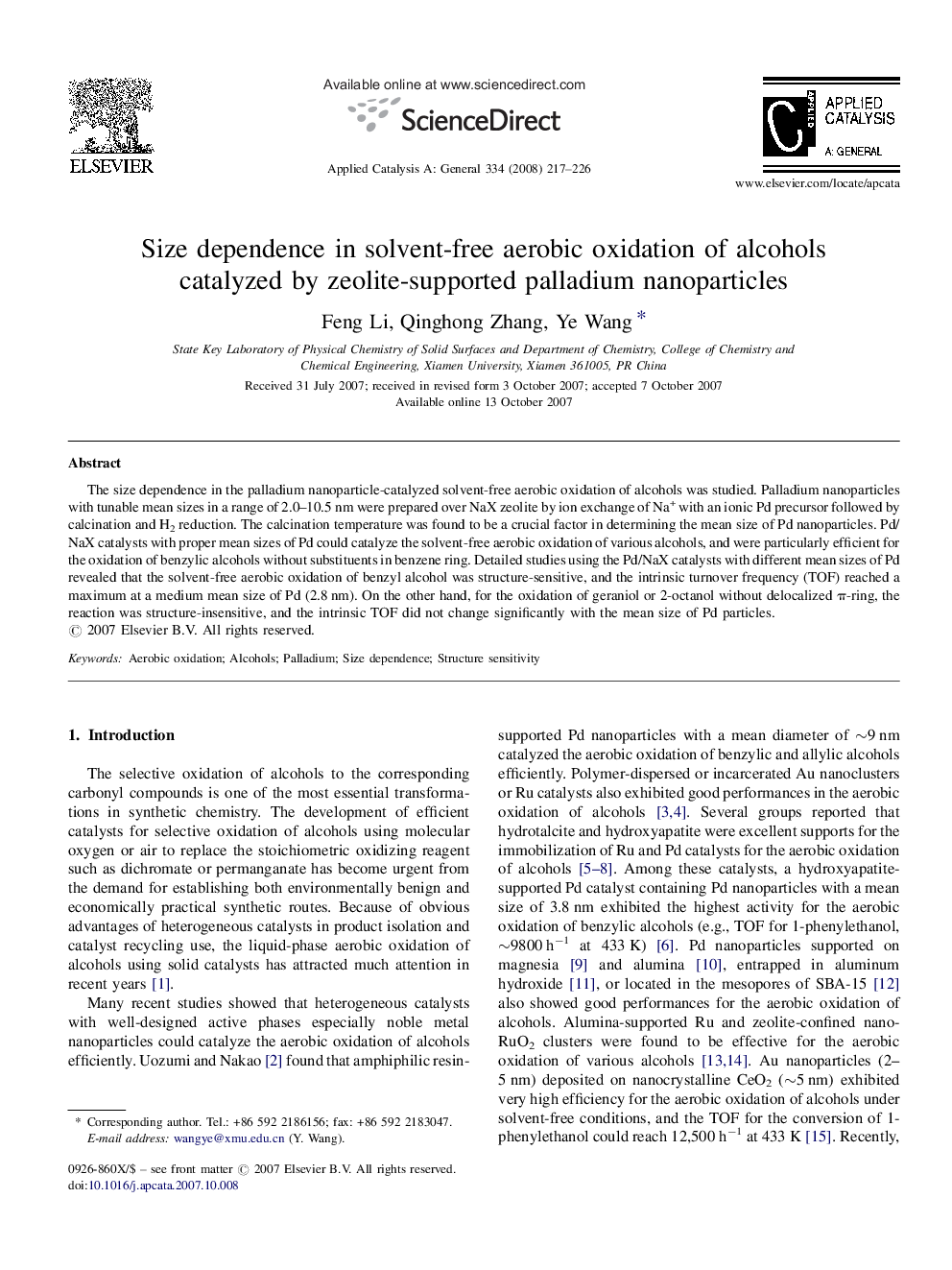| Article ID | Journal | Published Year | Pages | File Type |
|---|---|---|---|---|
| 43210 | Applied Catalysis A: General | 2008 | 10 Pages |
The size dependence in the palladium nanoparticle-catalyzed solvent-free aerobic oxidation of alcohols was studied. Palladium nanoparticles with tunable mean sizes in a range of 2.0–10.5 nm were prepared over NaX zeolite by ion exchange of Na+ with an ionic Pd precursor followed by calcination and H2 reduction. The calcination temperature was found to be a crucial factor in determining the mean size of Pd nanoparticles. Pd/NaX catalysts with proper mean sizes of Pd could catalyze the solvent-free aerobic oxidation of various alcohols, and were particularly efficient for the oxidation of benzylic alcohols without substituents in benzene ring. Detailed studies using the Pd/NaX catalysts with different mean sizes of Pd revealed that the solvent-free aerobic oxidation of benzyl alcohol was structure-sensitive, and the intrinsic turnover frequency (TOF) reached a maximum at a medium mean size of Pd (2.8 nm). On the other hand, for the oxidation of geraniol or 2-octanol without delocalized π-ring, the reaction was structure-insensitive, and the intrinsic TOF did not change significantly with the mean size of Pd particles.
Graphical abstractStudies using NaX-supported palladium catalysts with mean sizes of Pd particles ranging from 2.0 to 10.5 nm reveal that the turnover frequency for benzyl alcohol oxidation exhibits a maximum at a medium Pd size of 2.8 nm, whereas the turnover frequency for the oxidation of geraniol or 2-octanol is almost independent of the size of Pd.Figure optionsDownload full-size imageDownload as PowerPoint slide
